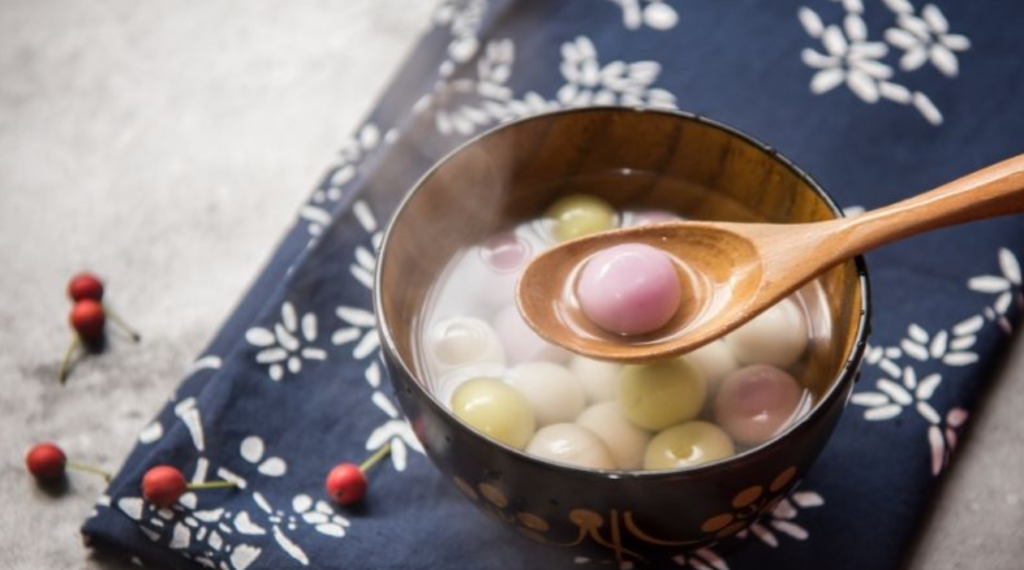Winter Solstice known as Dongzhi (冬至) in Chinese refers to the “arrival of winter”. It’s the last Chinese festival of the year before celebrating the Lunar New Year. It is also known as the longest night of the year when the sun travels the shortest path through the sky, resulting in the shortest day and longest night of the year and has been celebrated since the Han Dynasty worshipping heaven , ancestors and earth.
The traditional food on Dongzhi day is called Tangyuan (汤圆) or small glutinous rice dumplings where family members gather and enjoy the Tangyuan together. Other than eating Tangyuan, there is a tradition of counting nines. This very interesting practice involved counting the winter by nine periods of nine days starting from the Winter Solstice. The folk tell people about the changes in the weather and guide them in farming in the past. They believed after 81 days starting from the Winter Solstice, spring would come. Therefore the farmers will need to prepare for farming accordingly.
Drinking rice wine also appeared to be one of the traditions on the evening of the Winter Solstice night in South China which is believed to bring a better life especially on the cold winter night. Apart from wine drinking, making tofu also seems to be a common practice where people use it as a gift to friends and relatives as the tofu made with cold water is more delicious, with a rougher texture and richer flavor.
In the villages and rural areas of China, as soon as the Winter Solstice arrives people will start making cured meat and sausages ready for the Lunar New Year. It is a good time to slaughter pigs and cure meats with the colder weather and the ideal wind flows that could make better quality and fragrance.
Now here in Malaysia, Winter Solstice has become a very important Chinese festive with the reunion of family and having a feast together just before Christmas as the day falls on 21-23th of December. The spirits of worshipping ancestors are foremost by food offerings and Tangyuan. Worshipping ancestors at Dongzhi is called “family sacrifice”. Most Chinese families will get busy a few days before Winter Solstice to start buying paper money and folding paper into winter clothes to offer to their ancestors expressing their grief and respect.
Today we are celebrating Winter Solstice with the greeting of “Happy Dongzhi Festival” or “Happy Winter Solstice”. Even though we live in Malaysia without feeling the cold winter the meaning and purpose of Winter Solstice is well practiced by all Chinese communities in Malaysia.

